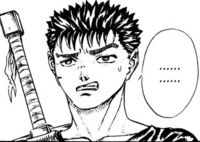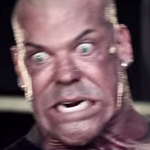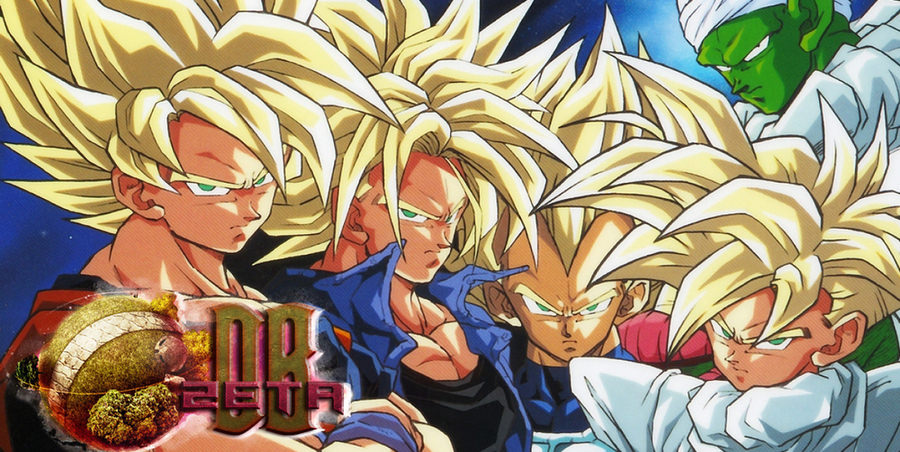Was going to wait until after Kenshi posted his thoughts on the episodes before posting my analysis of them, though with the clock ticking I may as well take the lead. If constricted when it comes to time, we could change things to fewer episodes per day [mention]Kenshi[/mention] such as 1-2.
Episode 41 - Compared to the 2011 version, this episode was an absolute mess. Hisoka VS Kastro got almost entirely skipped over and the reveal of Texture Surprise's ability as well as Hisoka's role as a member of the Phantom Troupe were entirely omitted, the latter instead being left for a later time. Moreover, they removed Gon's rematch with Gido and instead had Hisoka accept a challenge immediately when seeing Gon's aura. Even assuming the battle with Gido happens later in this version and Gon stays in Heaven's Arena a bit after Hisoka defeats him, this is a very out of place narrative compared to Gon proving the results of his training against Gido and not only his strength in Nen, but his capability of defeating an experienced and strategic Nen user, is a far better progression to Hisoka accepting his challenge and Hisoka being the logical endgame for Gon's time at Heaven's Arena.
This is a shame considering this idea of rematches as well as the events going on between them is what I'd consider one of the best aspects of the arc in the 2011 anime and the manga due to it still presenting high stakes in life or death battles but allowing the opportunity for the protagonist to lose whilst not being out of the competition, which is what I'd say Togashi should have made the Dark Tournament in YYH to avoid it being a generic Shonen tournament arc.
Killua slapping Gon's ass and then Gon making a comment that's very suspect when removing context....

:withheld
I'd also say that Gon VS Hisoka in this version is already off to a lesser start animation-wise. Also, most importantly, 1999 Hisoka doesn't have his fabulous JoJo-esque schwing. 0/10

.
Episode 42 - Comparing it to the 2011 version, this anime's Gon VS Hisoka is inferior in pretty much every way; be it choreography, art, voice acting, direction, etc. with some noticeable examples being Hisoka's masochistic exclamation at Gon's abilities and wanting to break him being nowhere near as expressive here and this anime not consistently showing the two using Ten. The only aspect I'd say could be argued as superior here is a Togashi avatar explaining what happened as opposed to the protagonist of Level E making a cameo. Even that, however, is hindered by the origin of Hisoka's Bungee Gum being infodumped needlessly as opposed to Hisoka giving a quick, concise and comedic explanation to Machi. Speaking of which, this elaborate way of presenting a tragic backstory for Hisoka is something I'd say is very unfitting of his character. It goes without saying that Hisoka is very much a Joker-esque character and, much like the Joker, knowing what background brought him to his current lifestyle isn't that important compared to how he acts as a hypothetical outcome and dark reflection of what Gon could be in the right situation if he made his battle drive the main focus (something we saw a little of in the Chimera Ant Arc) as well as how he acts as a chaotic aspect of the plot who lives in the moment rather than placing too much emphasis on the past.
Having Hisoka and Machi's conversation about the Spiders and Yorknew left until after the match with Gon doesn't work as well in terms of pacing due to being less concise than just placing all the Hisoka and Machi moments of the arc in one scene.
For Gon VS Hisoka itself in all versions though, it serves as a good way of showing both how much Gon has progressed and how far he still needs to go, offering a good opportunity for a protagonist to lose against a rival that not many Shonen offer when it comes to potentially life or death battles. Hisoka's explanation on Nen personality types (particularly Transmuters) also helps set up the inner conflict Killua would have in his priorities during the Chimera Ant Arc.
Episodes 43 and 44 - As expected, placing the rematch with Gido as well as the matches with Riehlvelt after the battle with Hisoka ruins the narrative progression of the arc as they're pretty much fodder after facing someone constantly compared to a Floor Master and far more relevant to the plot, not to mention the person who was considered Gon's end goal in fighting at the start of the arc. It's like if after the fight with Freeza, the arc concluded with Galu stomping Ginyu (won't use Trunks killing his timeline's Cell as he wasn't the protagonist and that had a valid reason for being the closing point of the Cell Arc). Killua's expression when threatening Sadaso is more intimidating than in the 2011 version, but that's the only positive this version has. Also, revealing Kurapika has learnt Nen before introducing Izunavi is yet another problem the 1999 version has in terms of the placement and pacing of scenes. Pretty sure the part about Netero having taught Wing Nen isn't in the manga and definitely isn't in the 2011 version, with it being blatantly contradicted by the time of the Greed Island Arc.
For both versions, having Nen not being made a baptism of fire in the Hunter Exam has some justification in it being meant to be kept a secret, though it doesn't justify why an examiner like Togari thought his knife trick was of any relevance when logic would dictate he was a Nen user and never displayed it (unless assuming he used it without such being made clear to the audience, which is still a problem).
Anyway, time for my analysis of the Zoldyck Family and Heaven's Arena arcs. There isn't much to say about the Zoldyck Arc as it's more so an intermediary point between arcs than a major storyline in and of itself, which is why I wouldn't say the anticlimactic nature of it is bad for what it was going for. Its main purpose was purely to set up the Zoldyck household and its dysfunctional nature, which it does fairly well and Killua being allowed to leave rather than having something forced on him was a better choice due to it alluding to the idea Killua lacks true freedom due to his upbringing despite being given the illusion of it. It's far from having any stand out moments, but accomplishes what it set out to do fine.
Heaven's Arena did a great job at establishing Nen as perhaps the most complex power system in action/adventure Shonen. Despite that, however, there are some issues with its implementation when it comes to continuity as already mentioned. The way Heaven's Arena functions is a good idea too and displays Gon's progression in using Nen well, though it's hard to praise Gon VS Hisoka too much when it's treat purely as a prelude to what confrontation they may have in the future that has yet (if ever) to be delivered on. I'll bunch them together as a 6/10.
Speaking purely of the 1999 anime though, the inconsistencies in the Zoldyck family arc as well as the absurd sequential change for the last 4 episodes of Heaven's Arena amongst other problems make it undoubtedly inferior to the 2011 anime and a major waste of many aspects of the manga. 4/10.

 ), so reducing the daily episodes would probably help balance things better time-wise. That, and it'll give ahill a better chance to catch up.
), so reducing the daily episodes would probably help balance things better time-wise. That, and it'll give ahill a better chance to catch up.